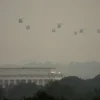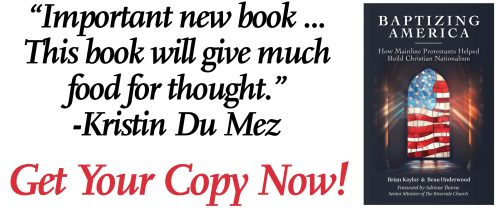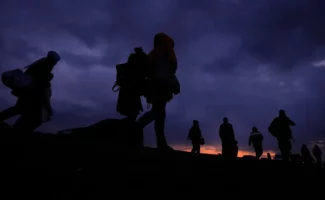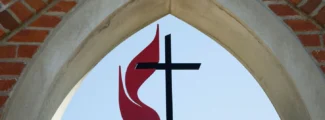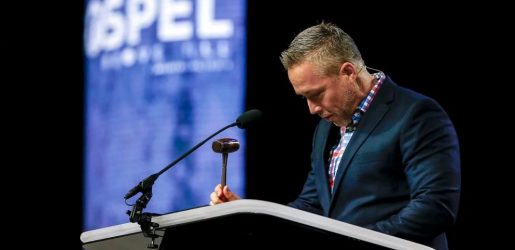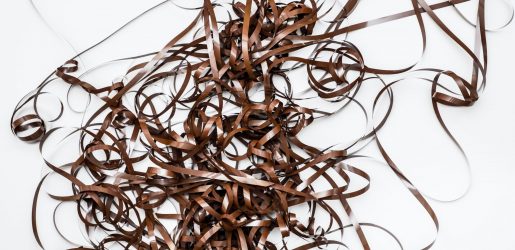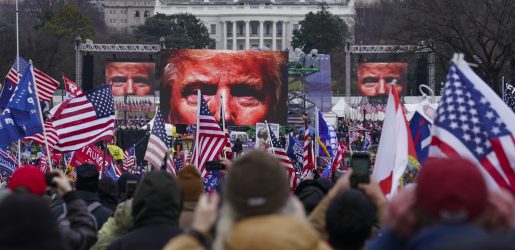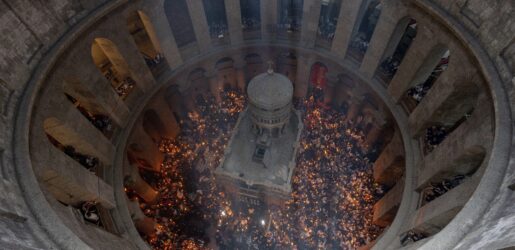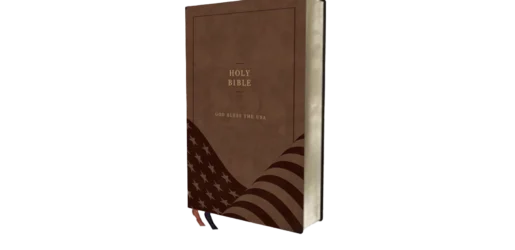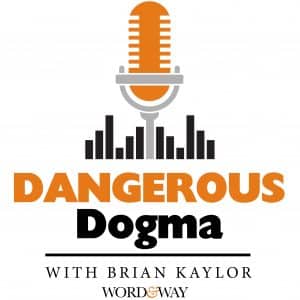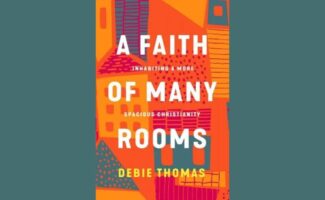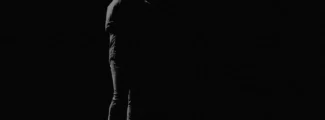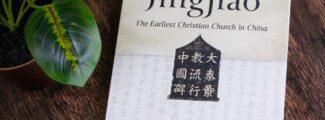Sign up to receive full essays in your inbox!
Featured
How to Train Your Compassion
Hiccup from the ‘How to Train Your Dragon’ movie shows his community a better way to be a Viking in a manner that keenly echoes the life and teachings of Jesus.
Raining on the King’s Parade
While a few sprinkles dampened Trump’s birthday military parade, millions of Americans across the country showed up at rallies to declare “No Kings” and show opposition to the administration’s authoritarian rule.
Suspect in Killing of Minnesota Legislator Is a Minister Who Evangelized in Africa
Vance Boelter claimed to be educated at Christ for the Nations, a Bible school in Dallas, and preached in DR Congo in recent years.
Church
Christian Groups Kick Off Lent With Letters Objecting to Trump Moves On Budget and Immigration
‘This year we celebrate Lent amidst a growing crisis in America, driven by the political accumulation of wealth, power, and control,’ reads one of the letters from faith groups.
Boycotts Accompany Prayer As Faith Leaders Prepare for a Lent of Protest
The Rev. Jamal Bryant said he hopes 100,000 ‘conscientious Christians’ will have signed up by March 5 to mark the ‘season of denial’ by fasting from shopping at Target.
Historic Black Churches Receive $8.5 Million in Preservation Grants
The grants will help the churches avoid demolition, pay for maintenance, and fix structural problems.
Nation
Supreme Court Tie Vote Dooms Taxpayer Funded Catholic Charter School in Oklahoma
The case came to the court amid efforts, mainly in conservative-led states, to insert religion into public schools.
With a Massive Ark and Museum, He Spreads Creationism a Century After Scopes Trial. He’s Not Alone
Ken Ham, founder and CEO of Answers in Genesis which opened the Ark Encounter in 2016, wants to succeed where he believes William Jennings Bryan failed.
With Fewer Ordinations, Seminaries Find Ways To Serve Young Professionals in Other Fields
‘Desperation is a spiritual gift, and so it gives you a chance to experiment with things that, you know, 10 years ago were off the table,’ said the Rev. Kenda Creasy Dean, a Princeton Theological Seminary professor.
World
Evangelicals Emerge as a Potent Lobby for US Support of Ukraine
There has been sustained outreach by Ukrainian Baptists and other evangelicals to their American counterparts who hold sway politically within the GOP — an increasingly isolationist party with standard bearers who remain skeptical of Ukrainian aid.
After UMC Approves Same-Sex Marriage, Unrest Breaks Out in Liberian Church
Protests broke out on Sunday at the New Georgia United Methodist Church in Monrovia over the suspension of an outspoken critic of same-sex marriage. The protests spread to other churches in the capital, prompting riot police to intervene.
This German Church Is the Tallest in the World. Until Spain’s La Sagrada Familia Is Done, Anyway
The Ulmer Münster in southern Germany is the world's tallest church. For now, anyway. The Gothic-style Lutheran church's reign — begun in May 31, 1890 — could end in 2025.
Editorials
The Leaven of J.D. Greear
Editor Brian Kaylor reacts to comments by Southern Baptist Convention President J.D. Greear, who on Monday attacked those in Southern Baptist life spreading “misunderstandings, distortion, and often outright lies.”
Death of My Childhood
Editor Brian Kaylor reflects on the deaths of two individuals he listened to as a teenager: Christian singer Carman and talk radio show host Rush Limbaugh. And Kaylor considers what those formative voices mean for him today.
Remember This Day?
Editor Brian Kaylor reflects on the second impeachment of Donald Trump, the role of religion in the Jan. 6 attack on the Capitol, and biblical stories of Moses and Jesus that offer a different path.
Word&Way Voices
Jerusalem: Holy Fire Spread to the World
Lauren Draper of Churches for Middle East Peace reflects on attending an ancient ceremony marking Orthodox Easter alongside Palestinian Christians in the midst of harsh restrictions from Israeli authorities.
Trump, Samson, and the Fall of the House of Evangelicals
Contributing writer Rodney Kennedy offers a unique rhetorical critique of how Trump acts and the danger this puts in the lap of his evangelical followers.
Donald Trump, Bible Salesman
Contributing writer Rodney Kennedy explores the various meanings behind Trump’s recent endorsement of Lee Greenwood’s ‘God Bless the USA Bible.’
E-Newsletter
Join Us for Online Panel & Class on Christian Nationalism
Sign up now to learn more about the separation of church and state, why it matters for protecting both democracy and our gospel witness, and how Christians can advocate for it.
Jerusalem Christian Leaders Denounce Trump’s Plan to Take Over Gaza
Adding to the many voices in the U.S. and around the world criticizing President Trump’s proposal, the patriarchs and heads of the churches in Jerusalem issued a powerful joint statement on Friday.
Canadian Christian Leader Urges Americans to Rebuke Trump’s Attacks on Canada
In light of President Trump’s imperialistic rhetoric and the potential negative consequences for both nations, Rev. Jean-Daniel Ó Donncada, the national pastor for the Christian Church (Disciples of Christ) in Canada, released an open letter.
Books
Review: A Faith of Many Rooms
In "A Faith of Many Rooms: Inhabiting a More Spacious Christianity," Debie Thomas takes readers on a deeply personal and profoundly theological odyssey.
Review & Giveaway: Ministers of Propaganda
This issue of A Public Witness explores what Scott Coley’s forthcoming book “Ministers of Propaganda: Truth, Power, and the Ideology of the Religious Right” reveals about the antidote to Christo-authoritarianism.
Review: A Quilted Life
In "A Quilted Life: Reflections of a Sharecropper’s Daughter," Catherine Meeks describes the adventures and adversity she encountered on her path to becoming an empowered voice for change.
Review: Jingjiao
In "Jingjiao: The Earliest Christian Church in China," Glen L. Thompson introduces readers to the surprising history of the early Eastern church — referred to as Jingjiao, or the Luminous Teaching.


